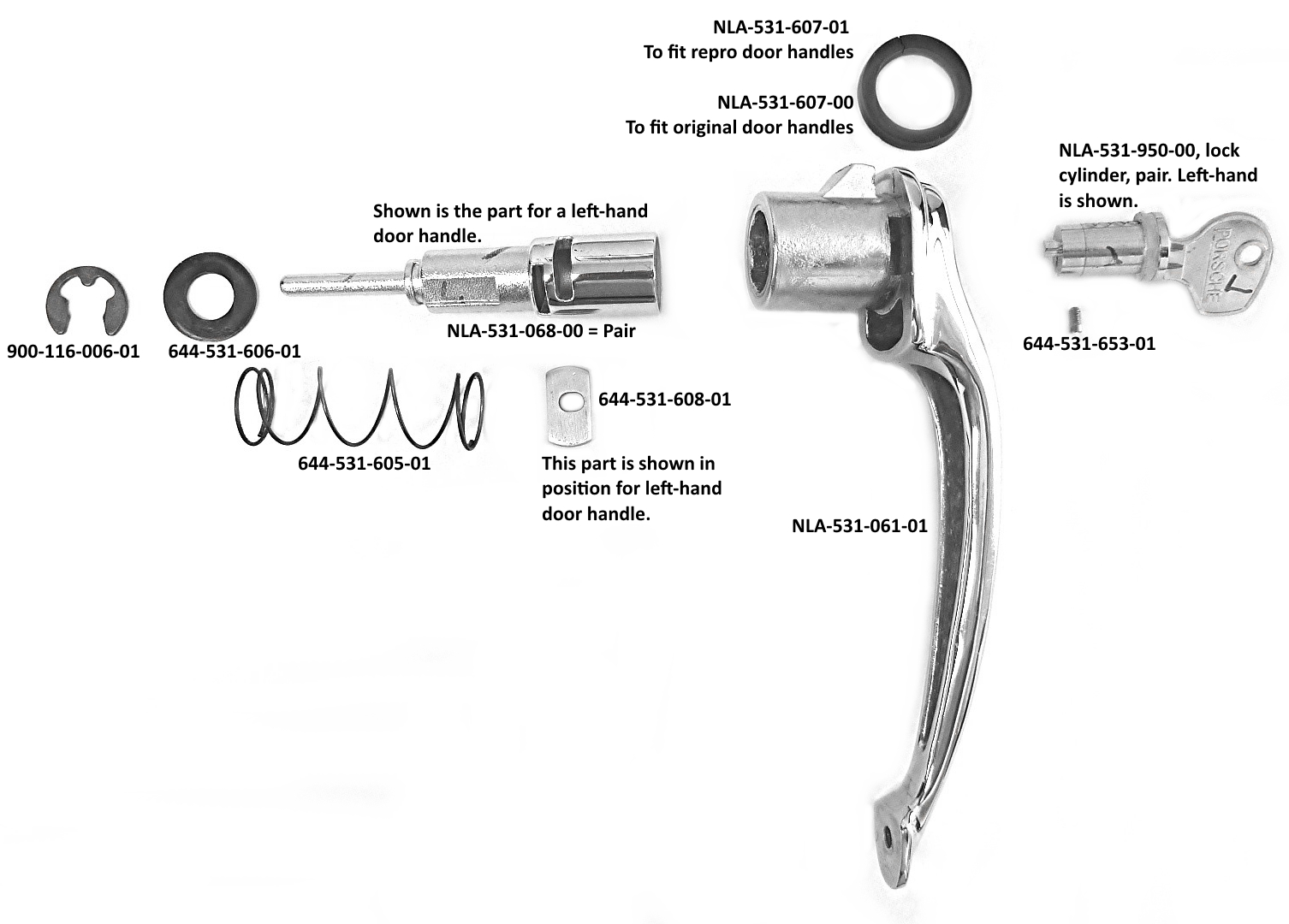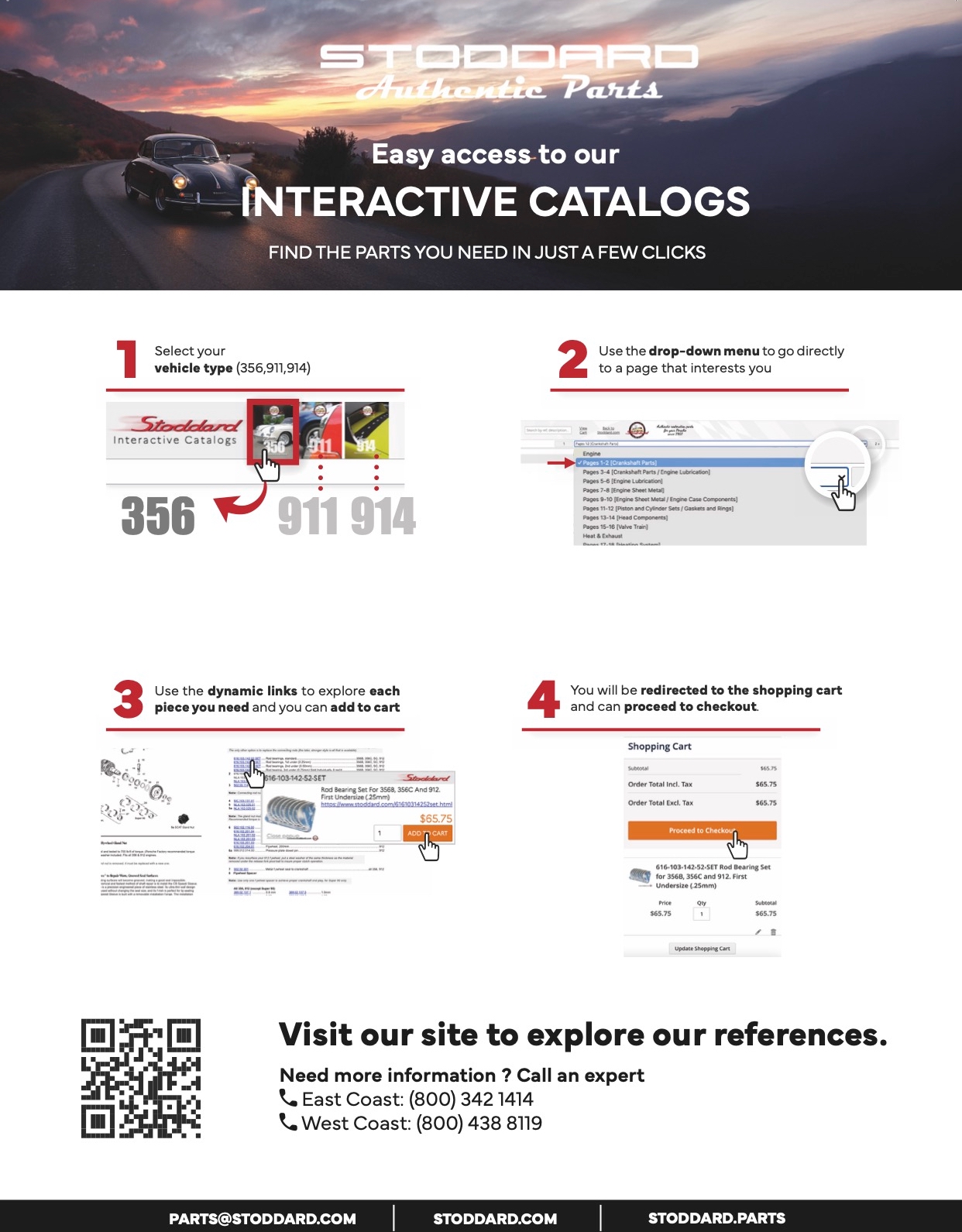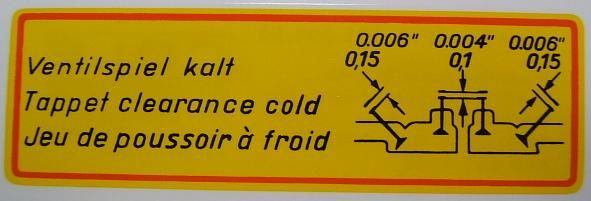Automotive part numbers—and Porsche pieces in particular, aren't the easiest things to decipher. There are, however, a few tricks that will help you out. First off, early 356 part numbers are split up into the following sequences of numbers: three digits, three digits and two digits (xxx xxx xx) for a total of eight numbers. Later Porsche have 11 digits, split into the following sequences: three digits, three digits, three digits and two digits (xxx xxx xxx xx).
We'll talk mostly about the later style, as it is, by far, the most common situation we'll run across. Most Porsche parts use a 3 digit prefix that relate them to a specific model in the Porsche range, usually the one that they were first designed for. However, Porsche has been known to carry these parts on to later models (e.g. 914 emergency brake switches are also used for 968 door light switches).
- Standard model prefixes include 901, 902, 911, 930, 914, 928, 964, 986, 996, etc. which usually correlate to the model on which you will find them.
- 999, 900, or N prefixes generally denote hardware components with multiple uses.
- As the 914-4 used a Volkswagen derived “type-4” engine, there are many VW part numbers used, 022, 021, and 113 are common prefixes for these parts.
- The 924/944/968 trio of cars were originally developed for use as a new Volkswagen sportscar using existing components such as the Audi 2.0 liter engine, VW MK1 derived front suspension, and VW Super Beetle derived rear suspension. As such, many of these components use VW part numbers.
- The automatic transmission found in the 928 is a model that was developed with Mercedes Benz, and uses their part numbering system, with prefixes like 115, 126, and 722 to show for it.
- Transmission or Engine parts can often receive their own prefix based on the number of that engineering exercize – 915, 741, 547, 950, etc.
Moving on we get to the meat of the part number. The first number in this second series of three digits signifies the section/system of the Porsche where the part can be found (i.e. Engine, Transmission, Front Suspension, Rear Suspension, etc.). The final two numbers in the series are related to the diagram number, within Porsche's PET system, on which they can be found (PET is the internal system of diagrams used for seeking out an individual part, most often found at dealership part counters). After some digging, this seems to be more based on coincidence than actual fact, but it seems that as the second and third digits increase in value, the part is found deeper in numerically higher diagrams. Using the below outline, I'll explain which numbers correlate to which system, and list a few of the components that can be found there.
100 – Engine
Rotating assembly, Flywheel, Case and Cylinder Head related components
200 – Fuel and Exhaust
Fuel Tanks, Pumps, Lines, Regulators
- Mufflers, manifolds, gaskets, tips, turbochargers
- 300 – Transmission
- Clutches, Pressure Plates, T/O bearings, internal components, mounts, clutch slave cylinders
- 400 – Front Axle/Steering
- Front wheel bearings, wheel seals, uprights, hubs, lug studs, suspension components
- Steering wheel, steering rack components, column mounted switches.
- 500 – Rear Axle
- Drive axles, rear wheel bearings, trailing arms, rear wheel bearings, hubs, lug studs
- 600 – Wheels/Brakes
- Wheels, center caps, spacers, lug nuts, master cylinder, calipers, pads, rotors
- 700 – Levers/Pedals
- Accelerator, clutch, and brake pedal assembly, accelerator and clutch cables, clutch master cylinders
- Hood, trunk, fuel door, and engine cover release cables
- Transmission control levers and linkages
- 800 – Body
- Sheetmetal, trim, emblems, decals, interior components from upholstery to hardware, all HVAC components
- 900 – Electrical
- Engine ignition system (distributor, coil, plugs and wires), alternators, starters, windshield wiper and washer system, ignition and dash switches, electric motors, in-car entertainment, lighting





